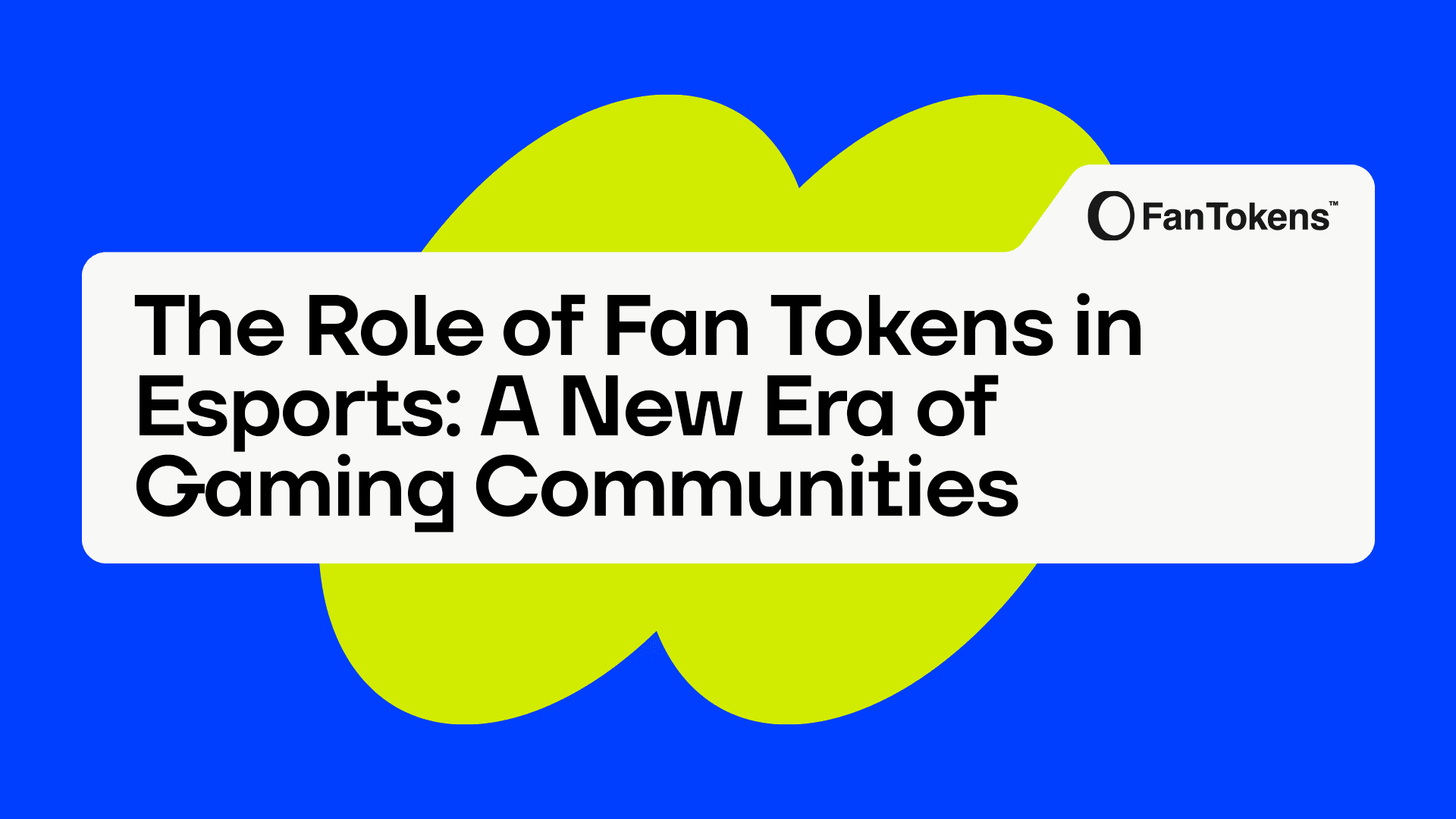The Role of Fan Tokens in Esports: A New Era of Gaming Communities

Esports used to be played to audiences packed into rooms, but it has now become a global phenomenon, reaching millions. In fact, it is one of the fastest-growing sectors of entertainment, attracting fans, sponsorships, and entire communities who treat the players as if they were real athletes. Professional gaming is not about competing only; it is about the relationships fans form with the players as well.
This is where Fan Tokens come into play. These blockchain assets turn fans from spectators to participants, allowing them to take part in team-related voting, receive special bonuses, and be part of a community. Fan Tokens are even changing the world of gaming as communities start to rethink how they interact with members, and the form of engagement they offer to fans.
Esports and the Rise of Digital Fan Communities
Esports has managed to become a global phenomenon, drawing in audiences that sometimes match or even surpass the numbers associated with mainstream sports. Primary tournaments fill stadiums in Asia, Europe and North America, as streaming platforms transmit the matches to millions across the world. Casual gamers in quiet villages and hardcore enthusiasts in the heart of metropolises; esports has cultivated a culture that transcends borders and languages.
Esports has a digital-first DNA which separates it from many other activities. Fans aren’t passive spectators in stadiums; they become active participants in the event. They interact with live chats and social media to form organic online communities.
For these viewers, active participation does not require a physical ticket to the match or a television set to watch the game. They are offered an uninterrupted stream of dialogue with the teams and players they idolize, allowing for immediate response and feedback with no barriers.
How Fan Tokens Enhance Esports Engagement
Fan tokens have altered the way audiences engage with esports teams. Instead of remaining passive observers, token holders participate in polls on music selection, in-game tactics during exhibition matches, and promotional content featuring players. Voting is just the tip of the iceberg. Fan tokens have additional perks such as exclusive discounted tickets for on-site tournaments, special in-game limited edition skins, and private meet-and-greets with professional players.
These benefits to the Fan Tokens provide value to the previously intangible digital ownership. It also blurs the lines between virtual interactions and physical engagement. For a sizable proportion of the fan bases, the offerings provide a feeling of being part of a close circle, instead of just another member of the global audience.
Real-World Use Cases: What Esports Can Learn from Traditional Sports
Football clubs were among the first to experiment with Fan Tokens, and the results have been telling. Teams like FC Barcelona, Paris Saint-Germain, and Manchester City allowed supporters to vote on jersey slogans, stadium music, and other cultural choices. These weren’t groundbreaking decisions, but they gave fans a seat at the table, and that sense of involvement proved powerful. Millions of tokens were sold, creating both revenue streams and tighter fan loyalty.
Esports organizations could take a similar route. Imagine a League of Legends team letting token holders decide on a special edition logo for the World Championship, or a CS:GO team allowing fans to pick warm-up music before a major match. Even smaller touches, like voting on which charity a team supports, can give digital communities a real stake in the culture around their favorite squads. What works in football can be reshaped for gaming’s younger, more digitally native audience.
Fan Tokens as a Bridge Between Gaming and Web3
Gaming communities now have added perks with the introduction of the new Fan Tokens, ownership along with their digital identity. The tokens come with voting rights, loyalty, elite access badges, and other valuable perks, all of which make the tokens more than just simple collectibles. These perks come with the added bonus of being identified as part of the inner circle as someone who is not just a fan, but a loyal contributor, setting them apart from the rest.
Token holders from different parts of the globe, such as from Manila or Los Angeles, can effortlessly interact with a team situated in Berlin with the perks of the tokens available to all holders, irrespective of their region. The perks of the token do not change in value, which makes them all the more valuable in the digitized esports world. The added bonus of the tokens is the secure fan ecosystem created courtesy of blockchain technology.
The Future of Fan Tokens in Esports
The next phase of Fan Tokens in esports could be deeply tied to how fans already interact with teams and players. Streaming platforms may soon integrate tokens directly, letting viewers vote during live matches or earn rewards for consistent watch time. In-game perks like exclusive skins, digital badges, or early access passes could turn tokens into something that players and fans use daily, not just occasionally.
Crossovers with NFTs are also on the horizon. Limited edition collectibles tied to major tournaments or legendary plays could carry token-gated access, adding a layer of exclusivity that resonates with esports culture. If these trends take hold, Fan Tokens may shape the very rhythm of esports fandom over the next decade, giving communities new ways to connect, influence, and celebrate the game they love.